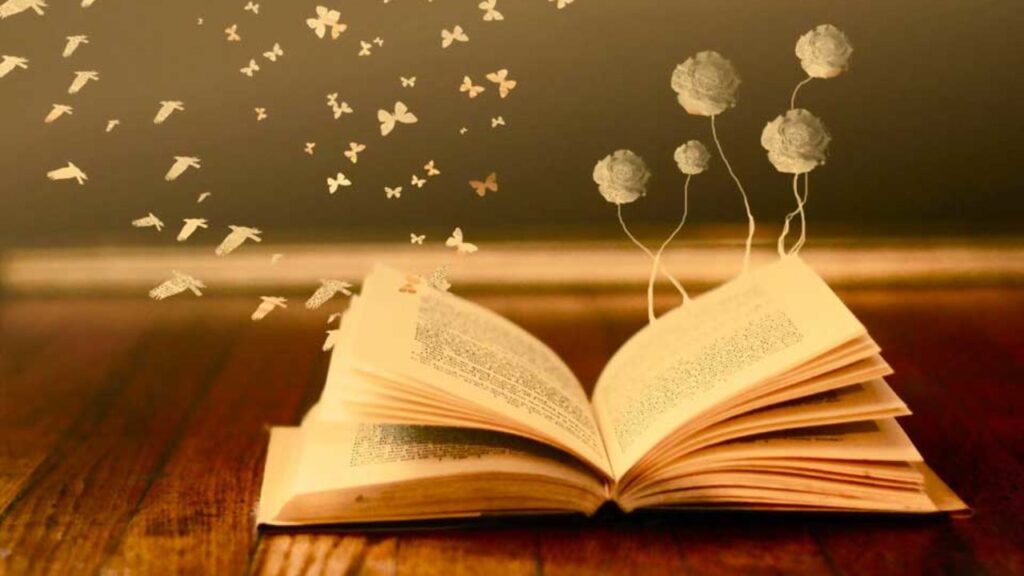When you read, your brain does much more than simply comprehend the words in front of you: It enables you to empathize with people you’ve never met, to engage with ideas that challenge and inspire you, to imagine other worlds.
Emily Underwood
The world of literature is unparalleled in its ability to transport us to an imagined dimension. That feeling of anticipation for the next page, with a tinge of bitterness as the book nears its end, is more than just entertainment. It is a cultural statement that enables society to explore its deeper meaning in the context of the vast array of people that make it up. Reading a culture’s literary achievements shines light on an otherwise deep abyss that resides within the collective minds of people, nigh impenetrable with other means.

Certainly books and novels are the most obvious examples, but this world of literature is not necessarily limited to them. I think that music, poetry, and even non-fiction news and articles, all belong to such canon. One medium that I am particularly fond of is film. I absolutely love the blend of the technical disciplines and the creative arts. It’s also not a solitary art, but rather requires collaboration.
As todays world moves further towards the real of interactive media, fewer and fewer people read. I think that this phenomenon is partly because we rarely experience “the pleasure of immersive reading — the feeling of losing [ourself] in a book.” We skim and skip, which leads to us forgetting what we’ve read, sometimes only moments later.
Over the years I have read a lot of material; and forgotten even more of it. Certainly for the most interesting reads, I can discuss the salient points, but the minutiae? Not really. So is there some redemption; some way to get back the ability to read effectively?
Emily Underwood argues that there are “no hacks or shortcuts to reading at this deep level.” It simply comes down to eliminating distractions and actively reading the text.
Active reading — taking notes, sketching, and talking with a friend about the text — can also help forge mental connections between the information you’re taking in and what you already know, increasing your retention.
Emily Underwood
A simpler method, when you just want to save an inspirational highlight, is to use a resonance calendar, which I first learned about from Ali Abdaal’s video.
I played around with idea of a resonance calendar myself in late 2019. But this was before I started writing frequently. And now, I’ve found that this process—writing down my thoughts and composing them for others to read—is actually far more effective way to remember salient points. As I’ve argued in the past, it is the development of ideas and the thoughtfulness that facilitates the act of remembering.
In the past, I might have read something and thought to myself, “Wow, that’s cool!” only to promptly forget it the next day. Now I actually write down my thoughts, distill them into their core idea, and synthesize them on the page. In reality, this blog is now my resonance calendar.
Wolf adds: ‘The good reader . . . goes beyond knowledge, goes beyond emotions and perspective-taking, into a realm where the furthest reaches of our thoughts can be generated.’ The ultimate goal of reading shouldn’t just be memorization, but reflection and insight.
Emily Underwood
Dossier
“How to Remember More of What You Read,” by Emily Underwood, January 22, 2020. https://forge.medium.com/how-to-remember-more-of-what-you-read-135022bf7668
“How I remember what I read,” by Ali Abdaal, July 28, 2019. http://email.aliabdaal.com/issues/how-i-remember-what-i-read-190611
“How I use Notion as a Resonance Calendar,” by Ali Abdaal, October 19, 2019. https://www.youtube.com/watch?v=lKYBB-Uw1IM
“Atomic Habits,” by James Clear, October 16, 2018.

Zubin
This post is very inspiring! As a student, reading is a big part of my life and I know that your attitude towards reading can heavily influence the information you can take from a text/book. Dr. Abdaal’s resonance calendar and your blog are both very great ways to immerse yourself in what you are reading and watching. Thank you for bringing these great ideas and pieces of information to us!
Sahil
Thank you for the kind words! Emily Underwoods original article reminded me of the power of reading and it made me want to read even more. But the fact is, there is no shortcut to reading effectively. I think having a resonance calendar (or blog! 😄) provides motivation to be an active reader, take notes, and have a deeper understanding of the material.
Zainab
I loved the idea of resonance calendar which I think brings reading to the next level!
Great blog Sahil!
Sahil
Thank you!
Originally I thought that it wouldn’t be too useful for me, and instead use my blog as a sort of resonance calendar. In fact, in many ways, I concluded, the blog is far superior. But now I’ve recognized that there are pieces that resonate with me, but not necessarily relevant to the blog. Therefore, it might be useful to include them in a resonance calendar. Of course, I will continue writing here and those points remain, but now there are times where a resonance calendar can be useful as well.